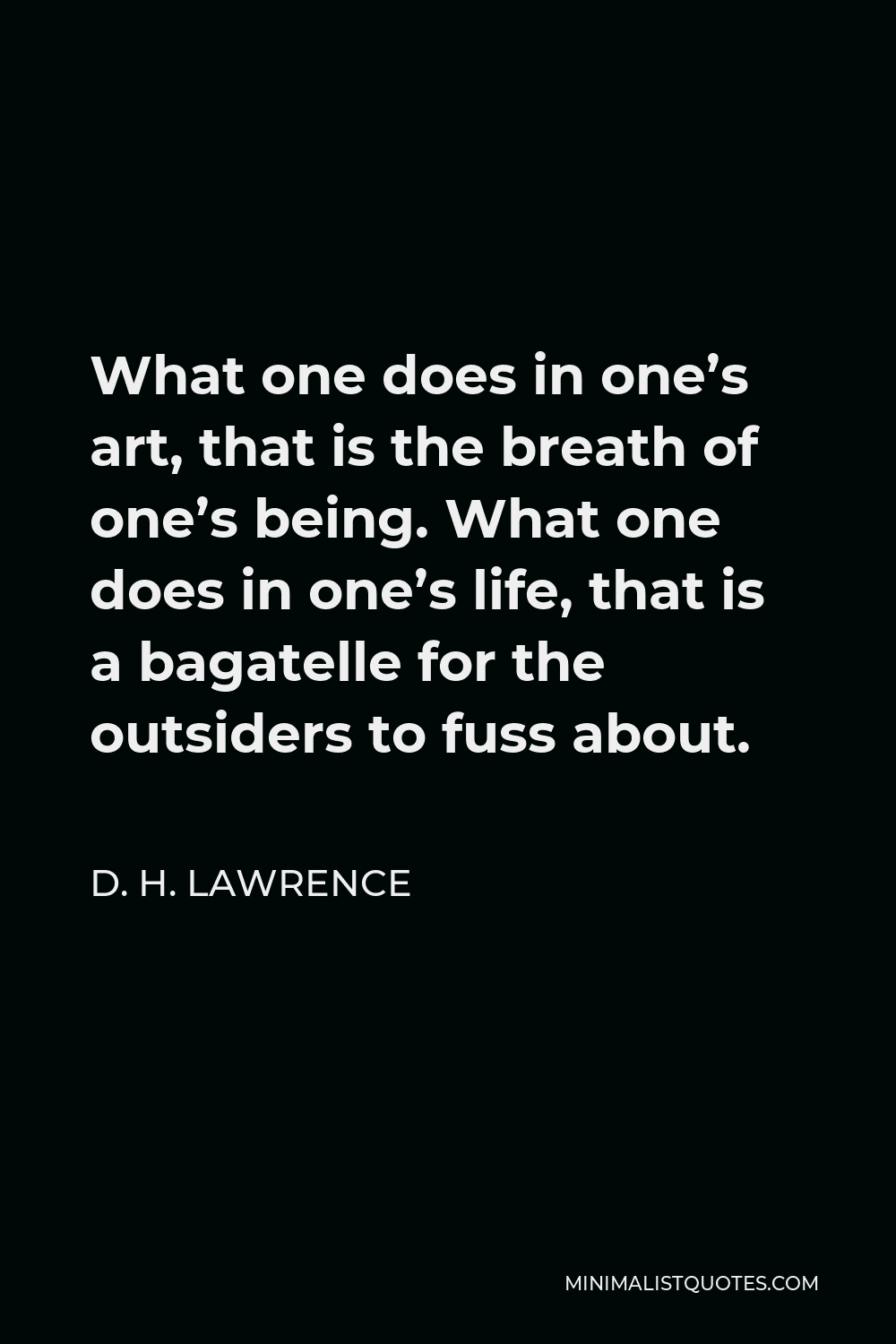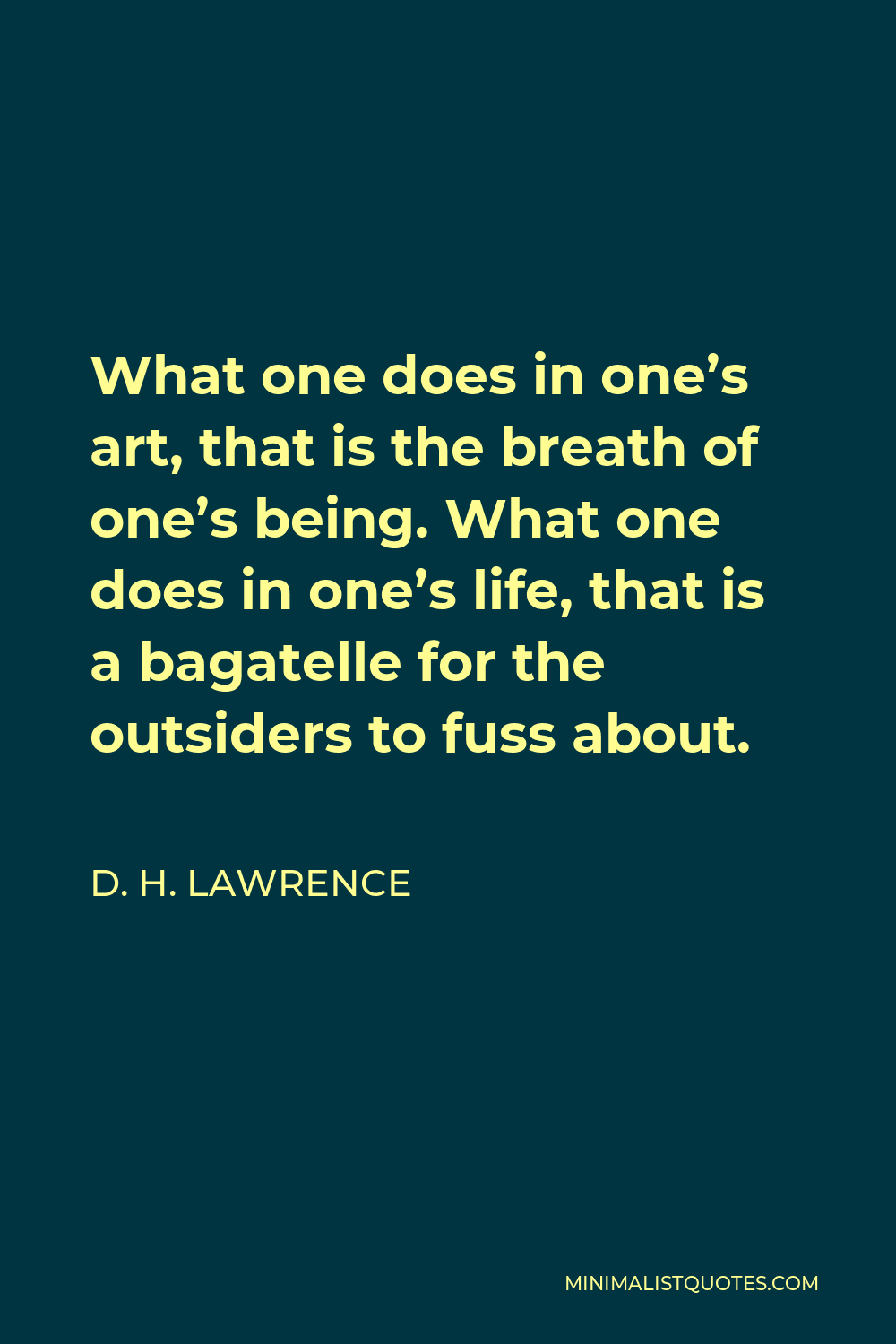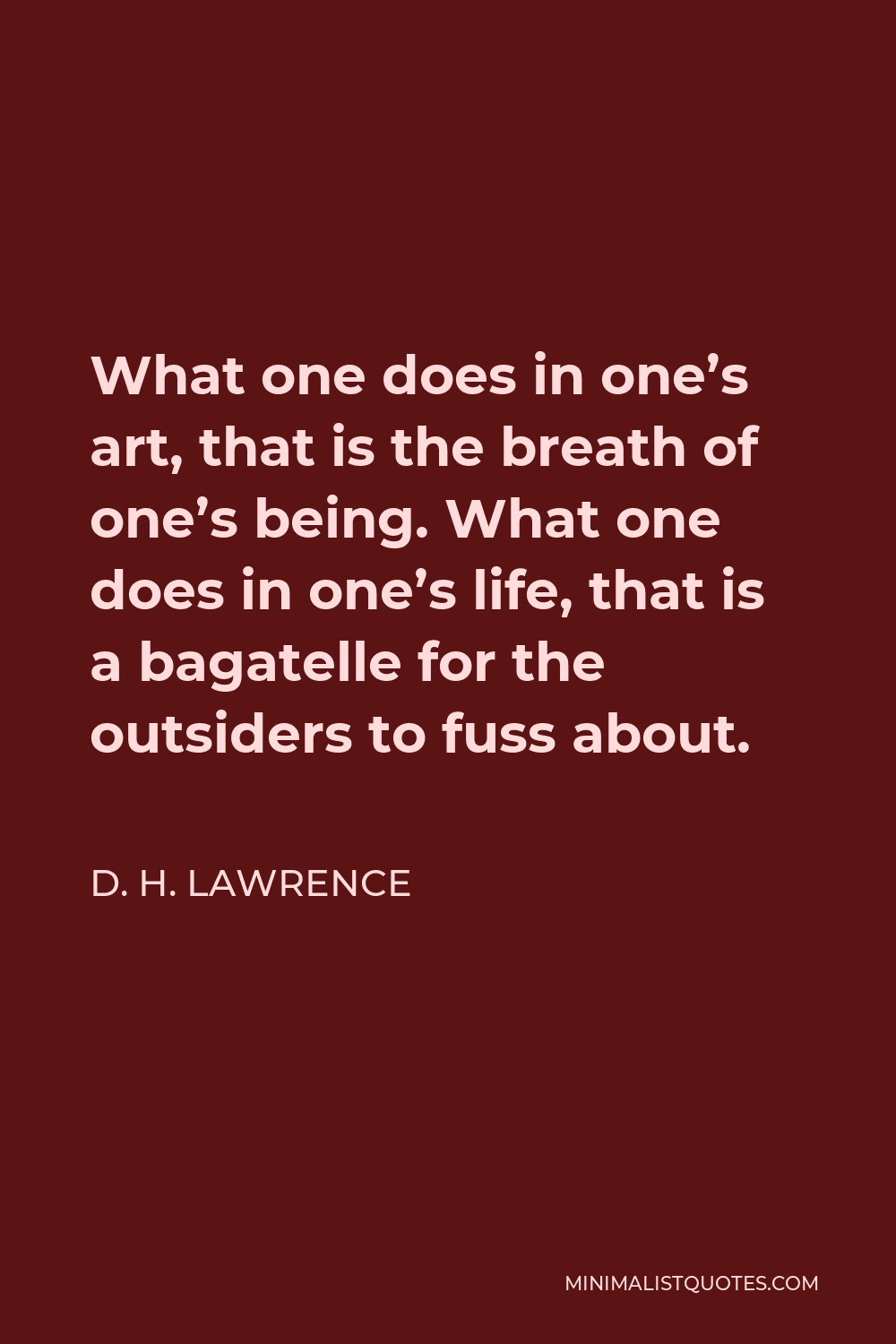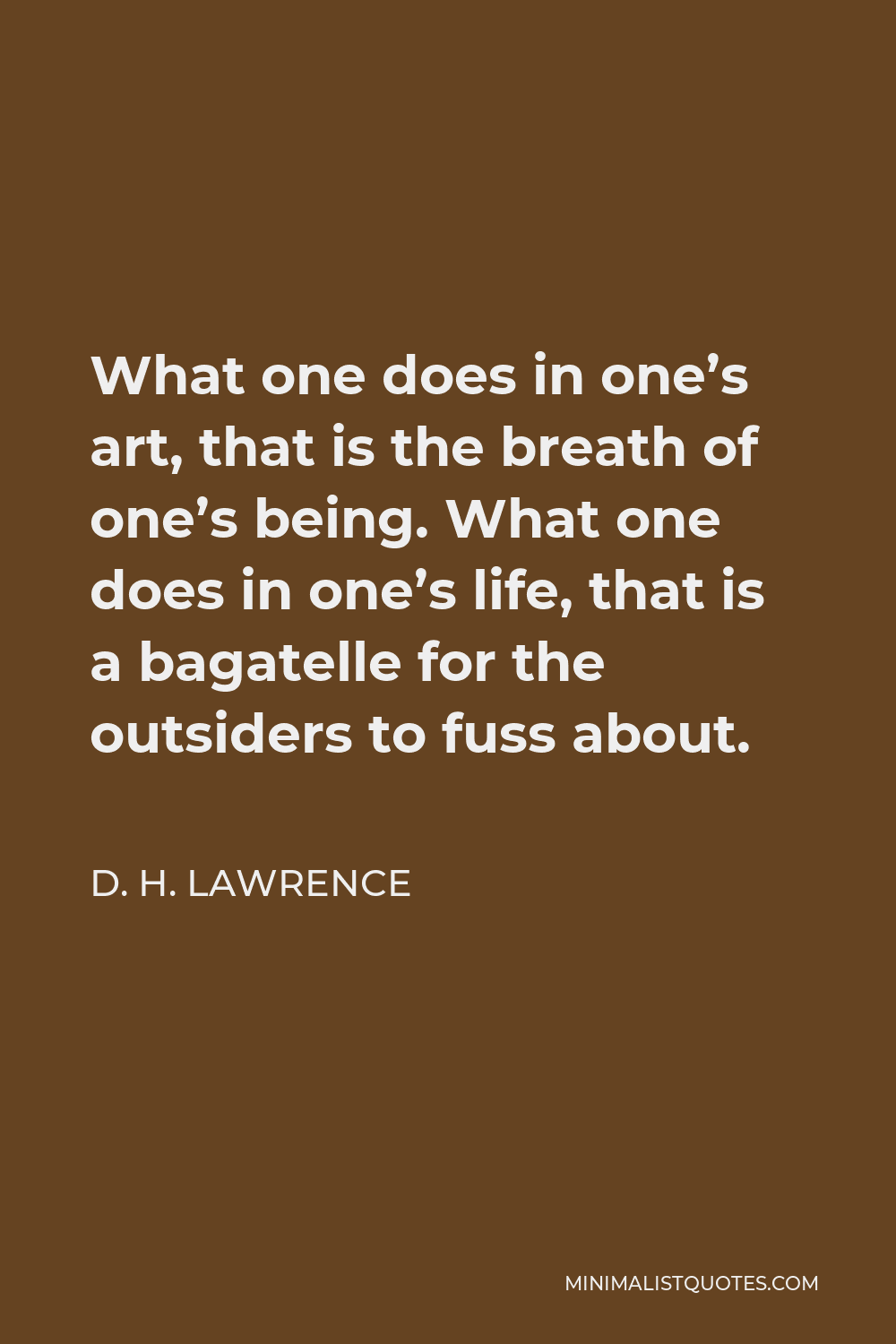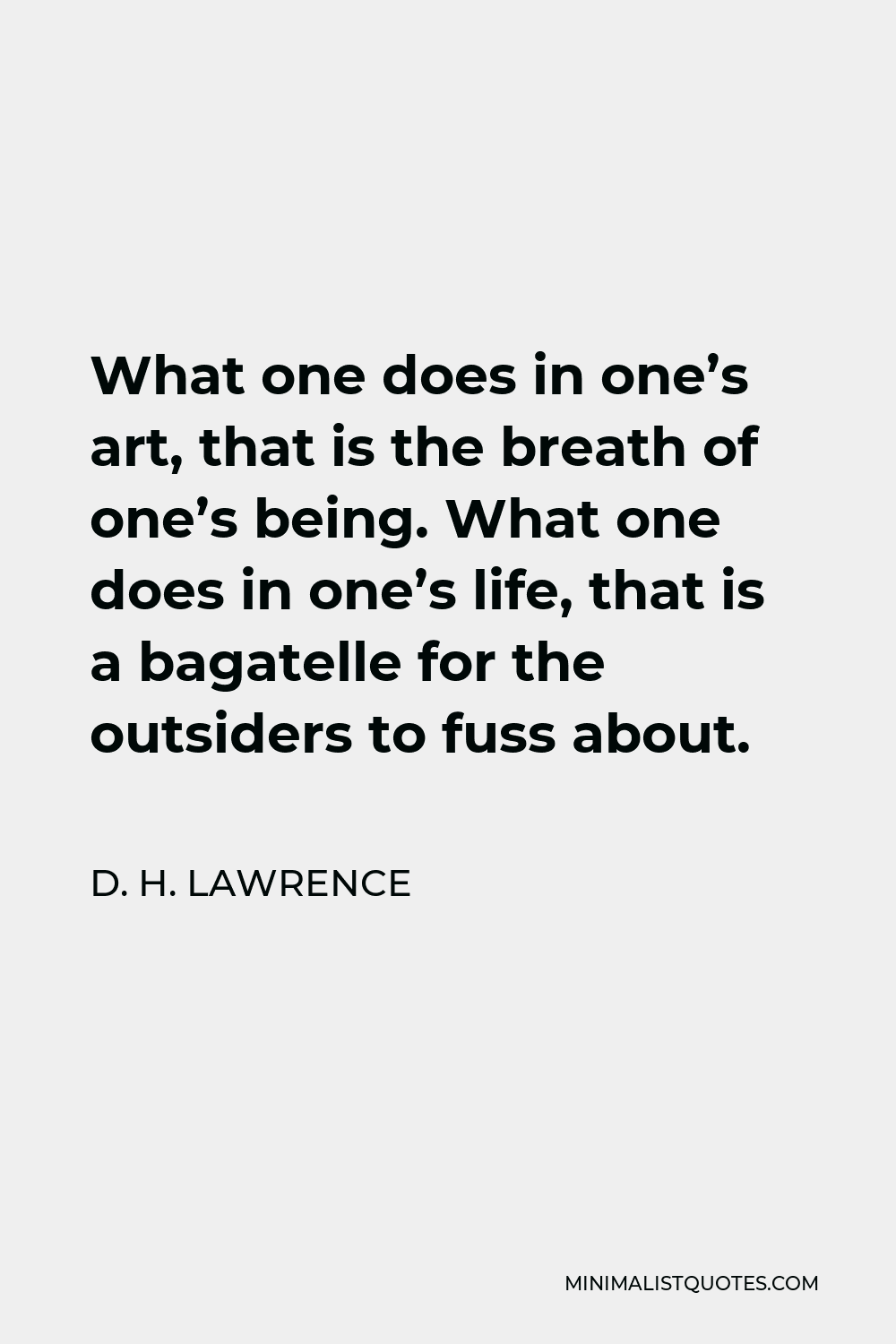Give up bearing children and bear hope and love and devotion to those already born.
D. H. LAWRENCEWhat one does in one’s art, that is the breath of one’s being. What one does in one’s life, that is a bagatelle for the outsiders to fuss about.
More D. H. Lawrence Quotes
-





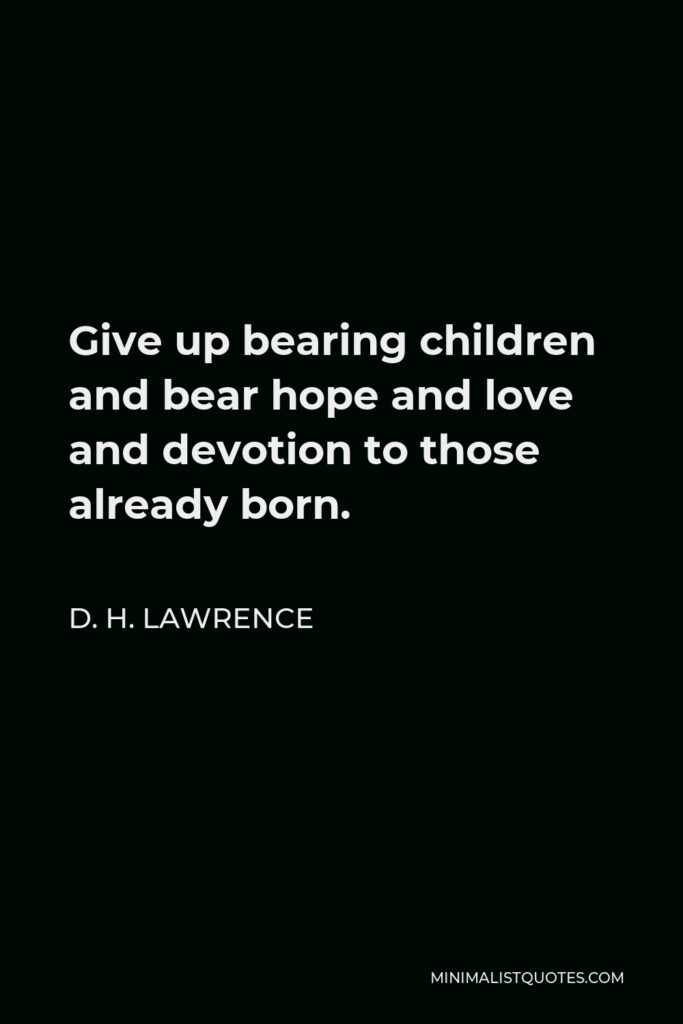

-





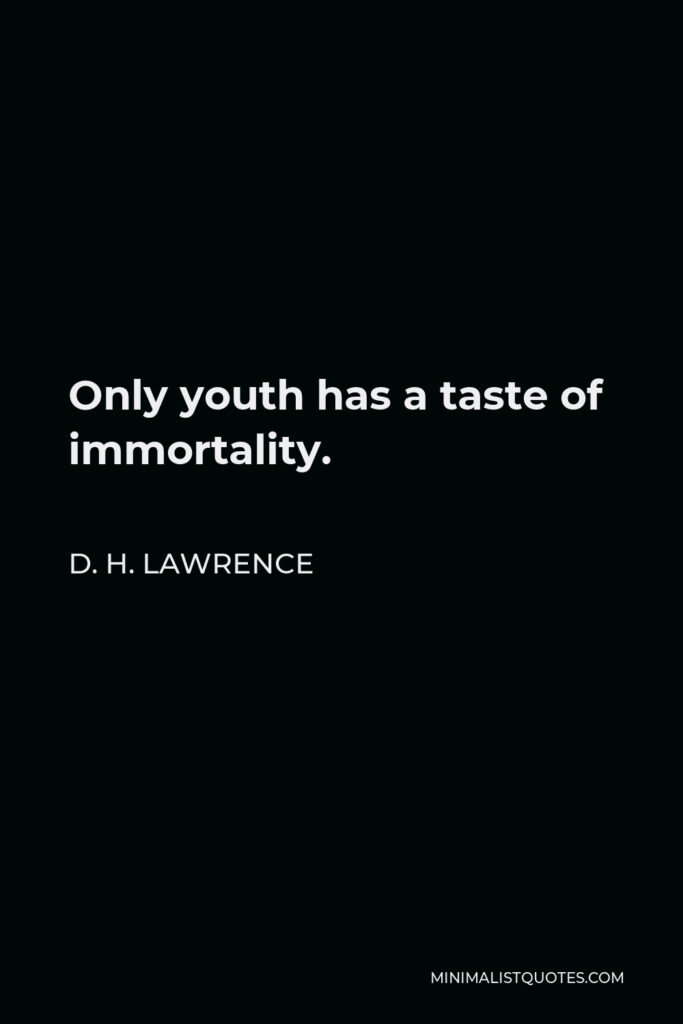

Only youth has a taste of immortality.
D. H. LAWRENCE -





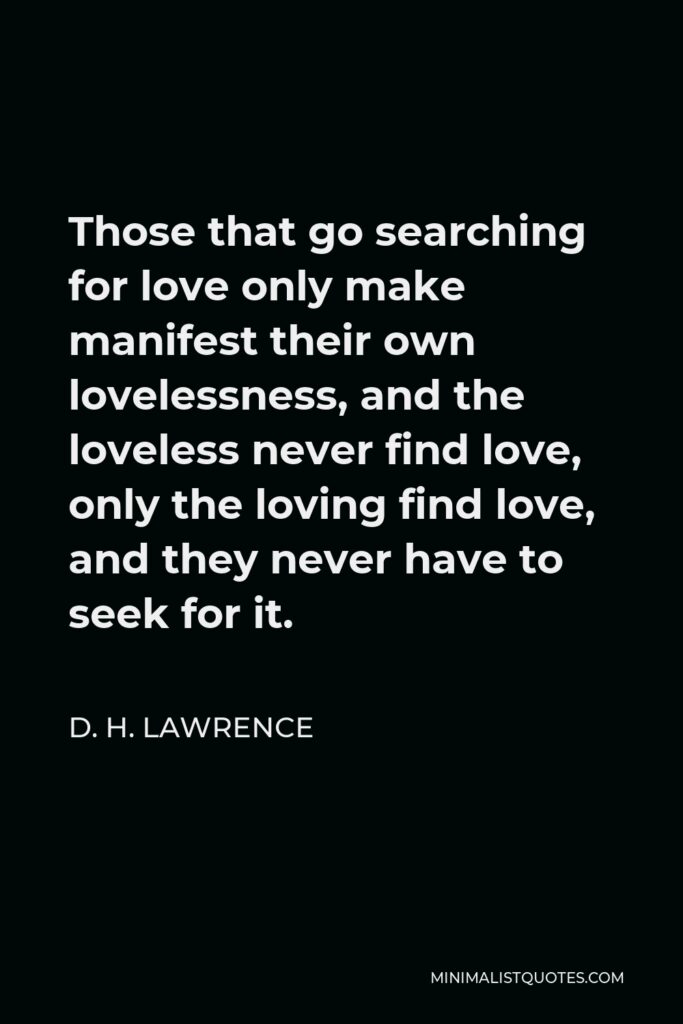

Those that go searching for love only make manifest their own lovelessness, and the loveless never find love, only the loving find love, and they never have to seek for it.
D. H. LAWRENCE -





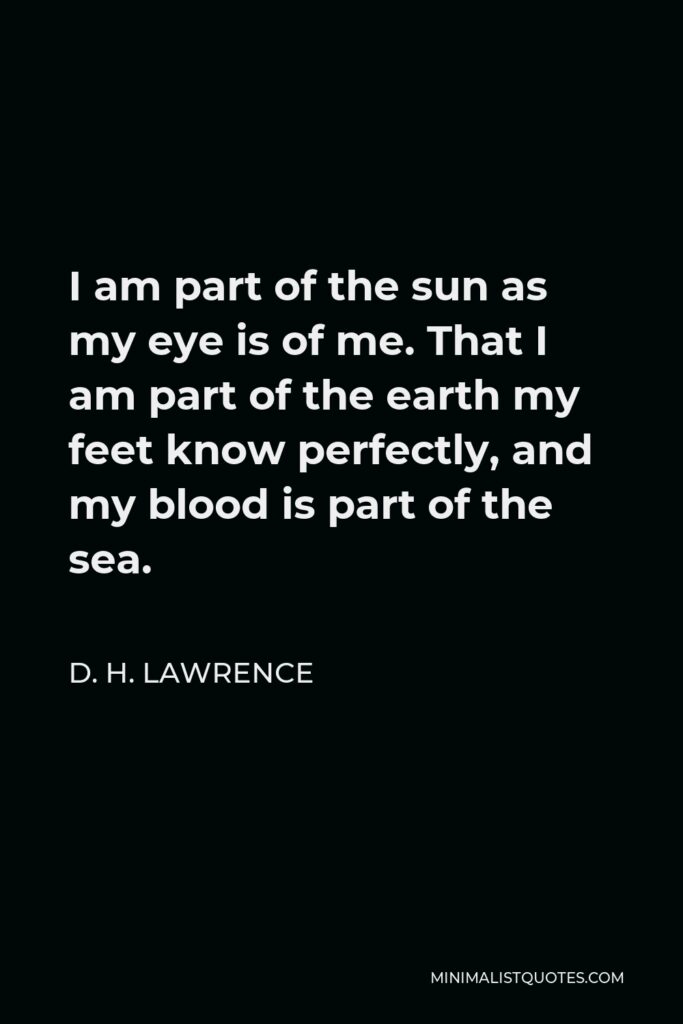

I am part of the sun as my eye is of me. That I am part of the earth my feet know perfectly, and my blood is part of the sea.
D. H. LAWRENCE -





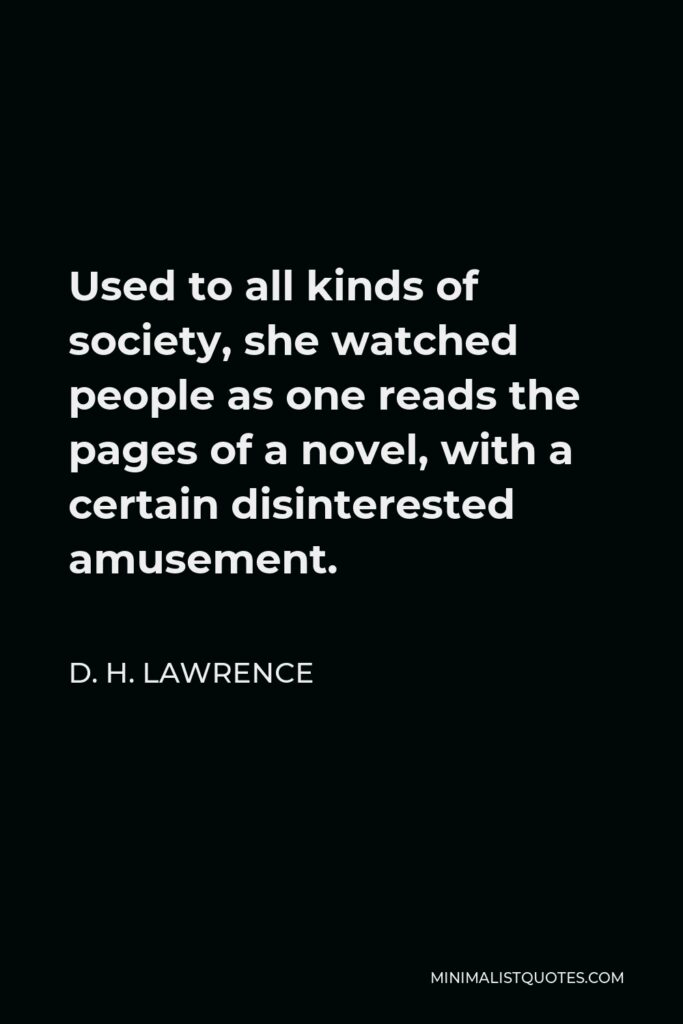

Used to all kinds of society, she watched people as one reads the pages of a novel, with a certain disinterested amusement.
D. H. LAWRENCE -





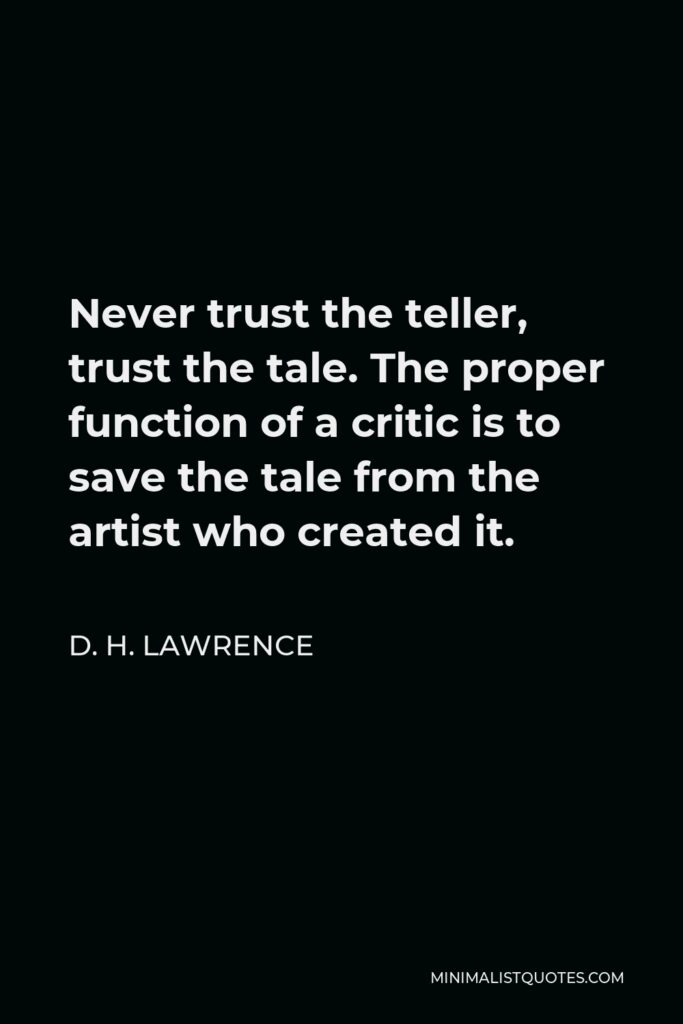

Never trust the teller, trust the tale. The proper function of a critic is to save the tale from the artist who created it.
D. H. LAWRENCE -





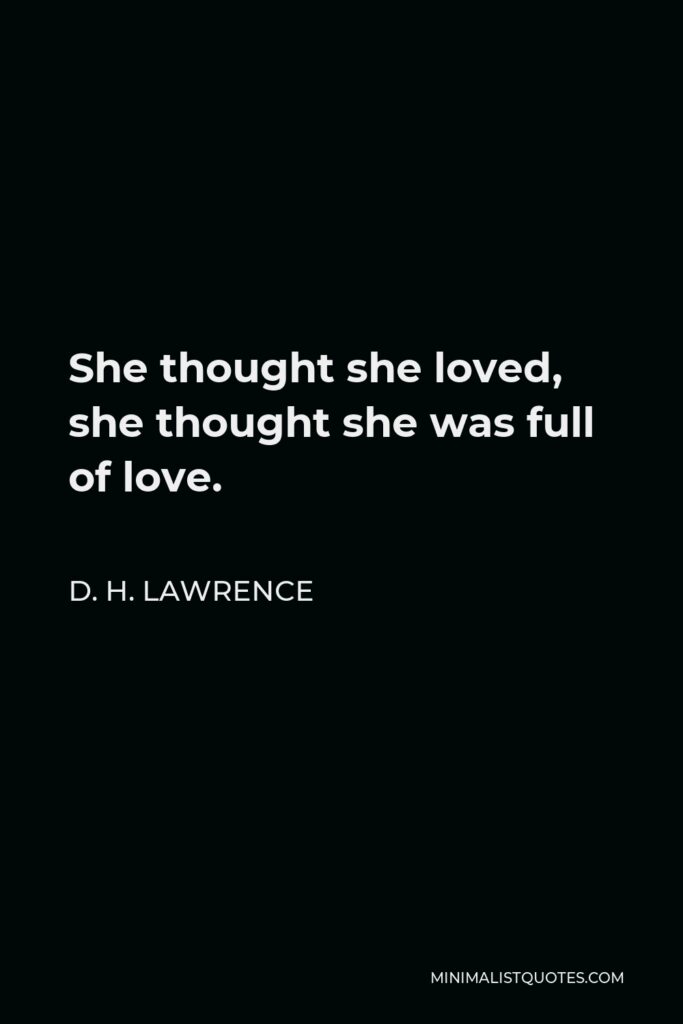

She thought she loved, she thought she was full of love.
D. H. LAWRENCE -





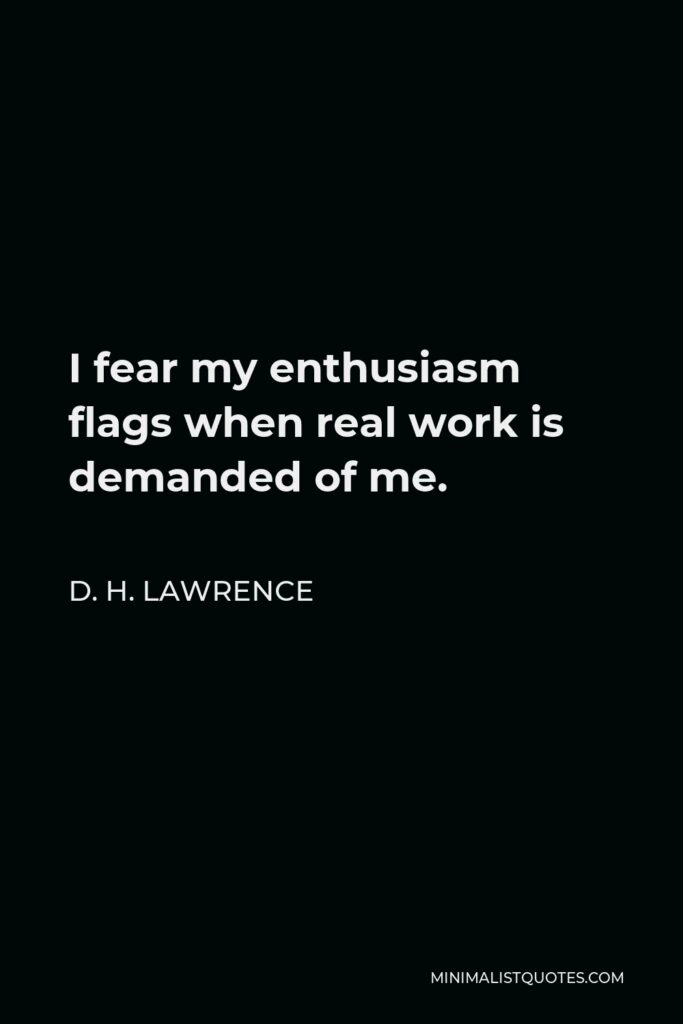

I fear my enthusiasm flags when real work is demanded of me.
D. H. LAWRENCE -





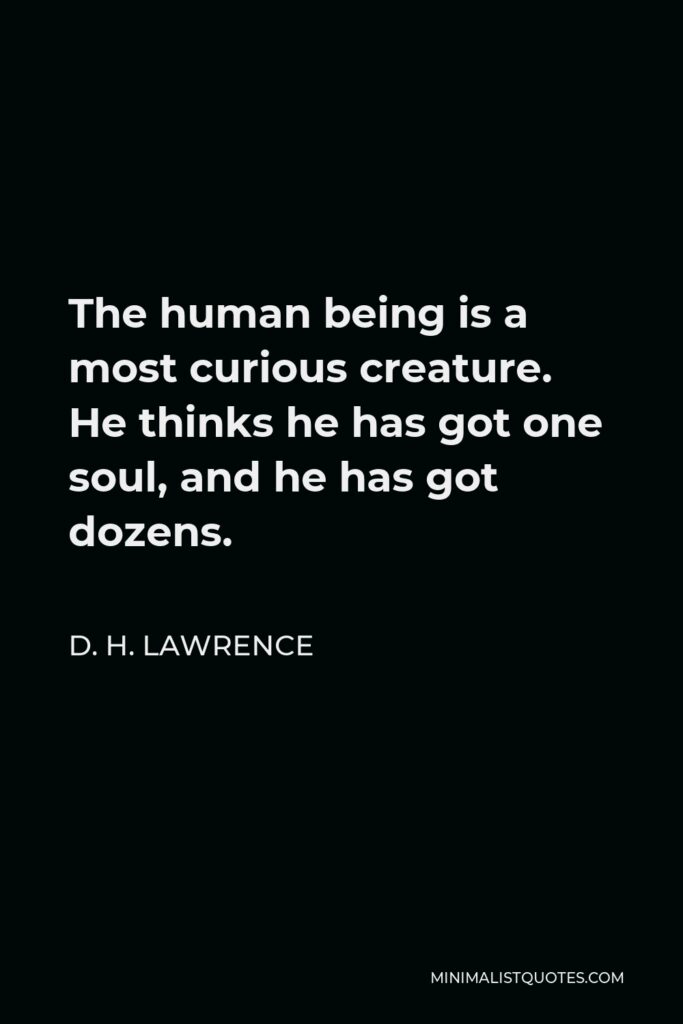

The human being is a most curious creature. He thinks he has got one soul, and he has got dozens.
D. H. LAWRENCE -







It’s not art for art’s sake, it’s art for my sake.
D. H. LAWRENCE -





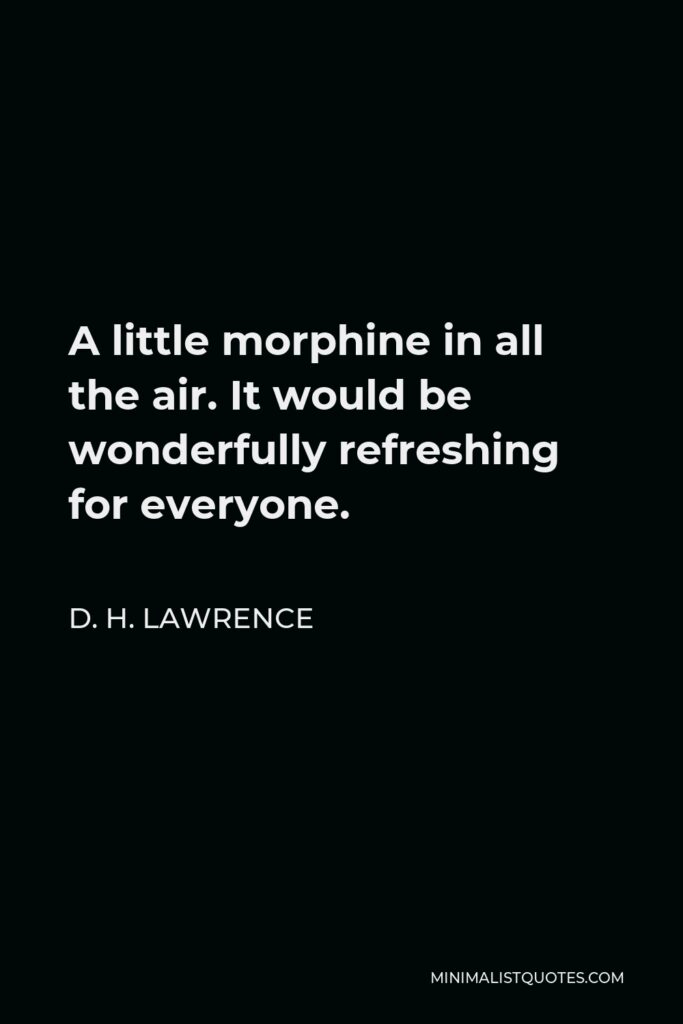

A little morphine in all the air. It would be wonderfully refreshing for everyone.
D. H. LAWRENCE -





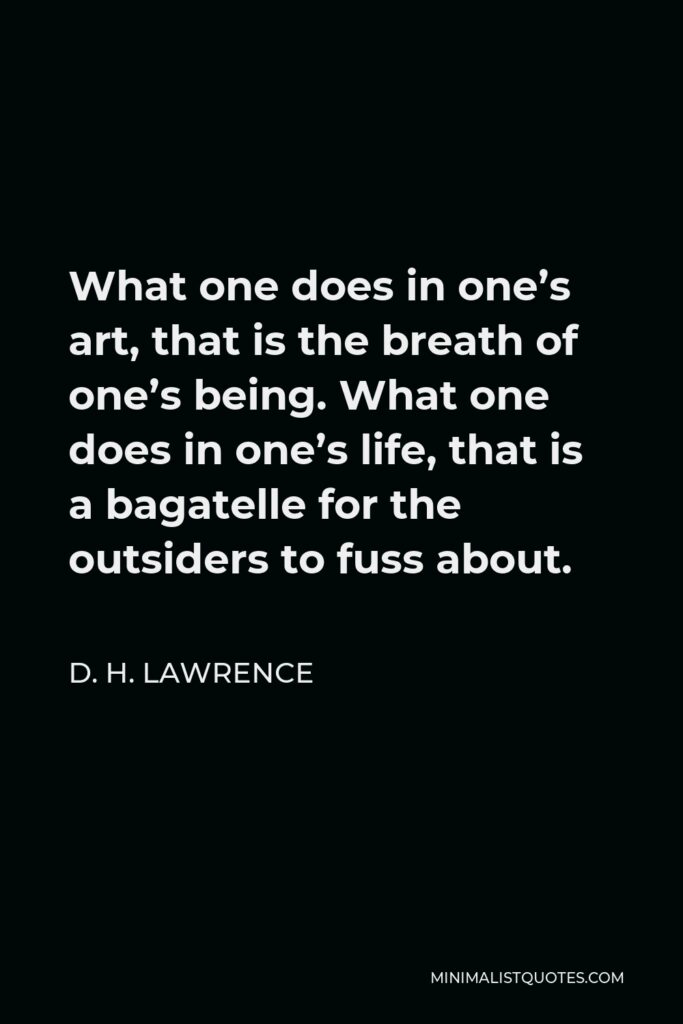

What one does in one’s art, that is the breath of one’s being. What one does in one’s life, that is a bagatelle for the outsiders to fuss about.
D. H. LAWRENCE -





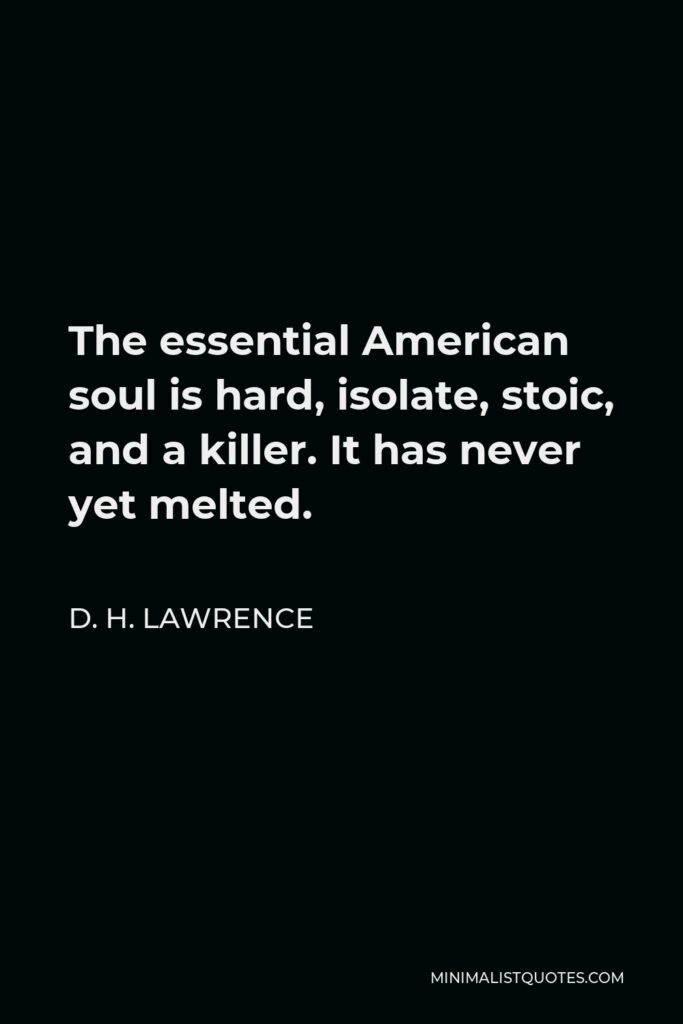

The essential American soul is hard, isolate, stoic, and a killer. It has never yet melted.
D. H. LAWRENCE -





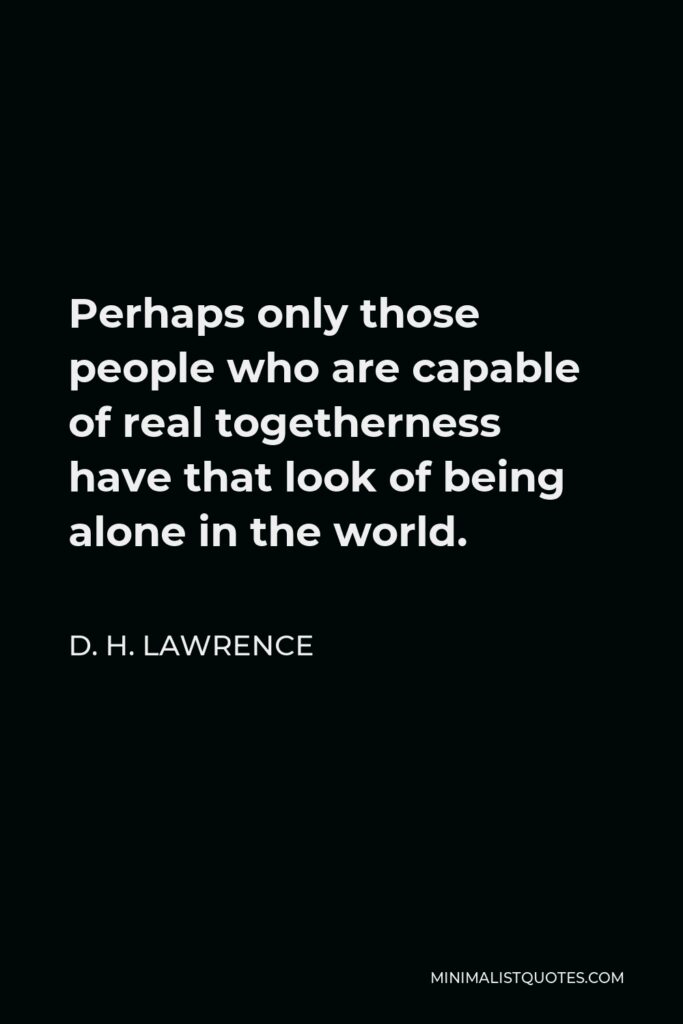

Perhaps only those people who are capable of real togetherness have that look of being alone in the world.
D. H. LAWRENCE -





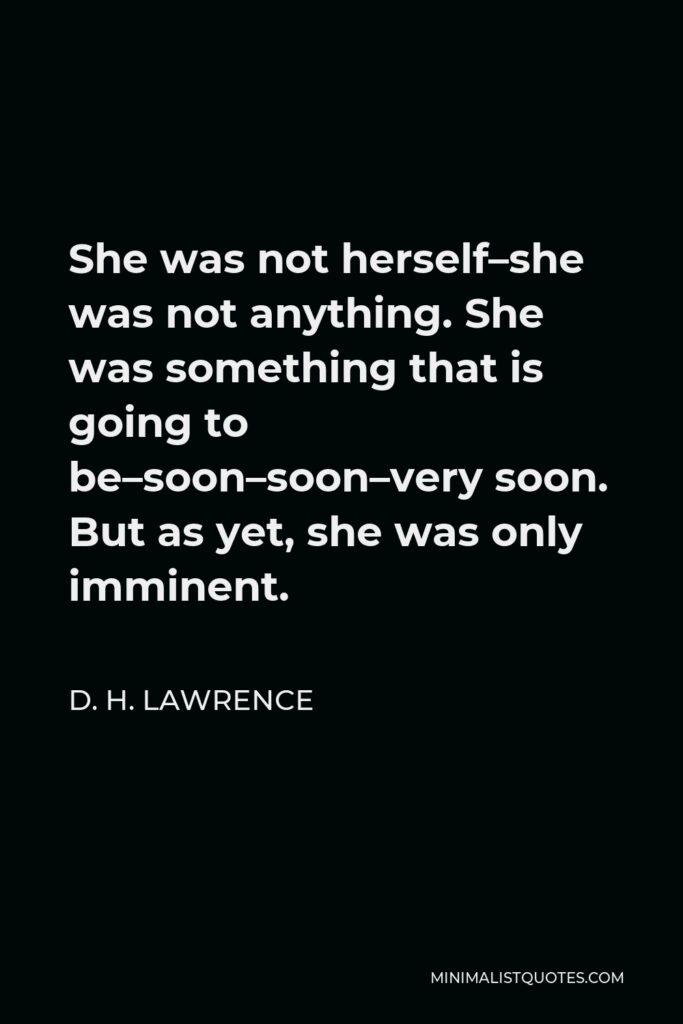

She was not herself–she was not anything. She was something that is going to be–soon–soon–very soon. But as yet, she was only imminent.
D. H. LAWRENCE -





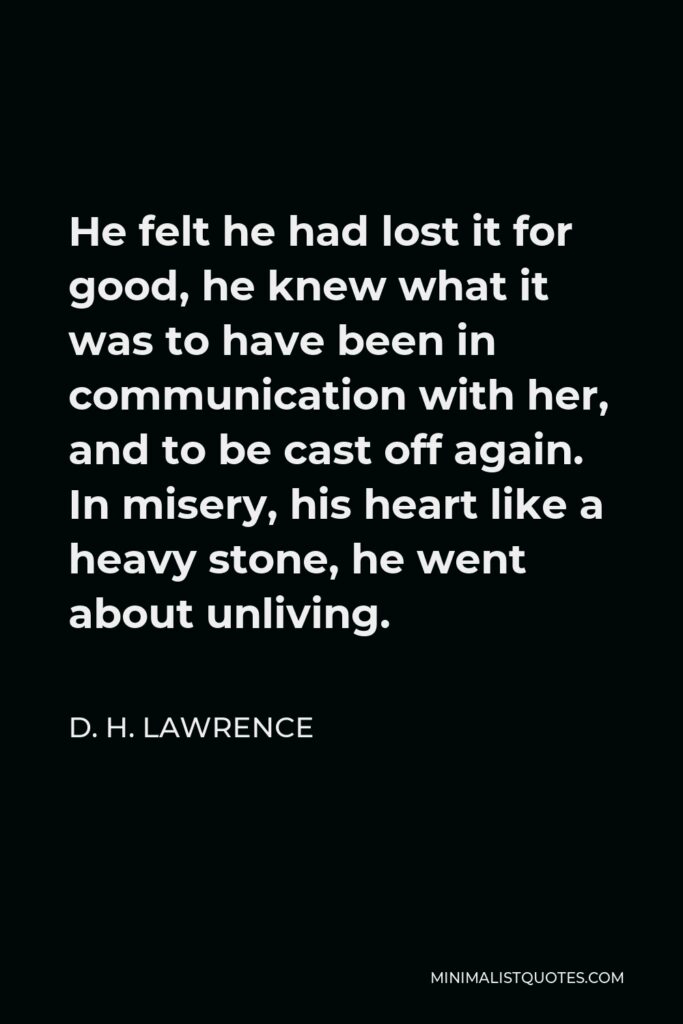

He felt he had lost it for good, he knew what it was to have been in communication with her, and to be cast off again. In misery, his heart like a heavy stone, he went about unliving.
D. H. LAWRENCE
